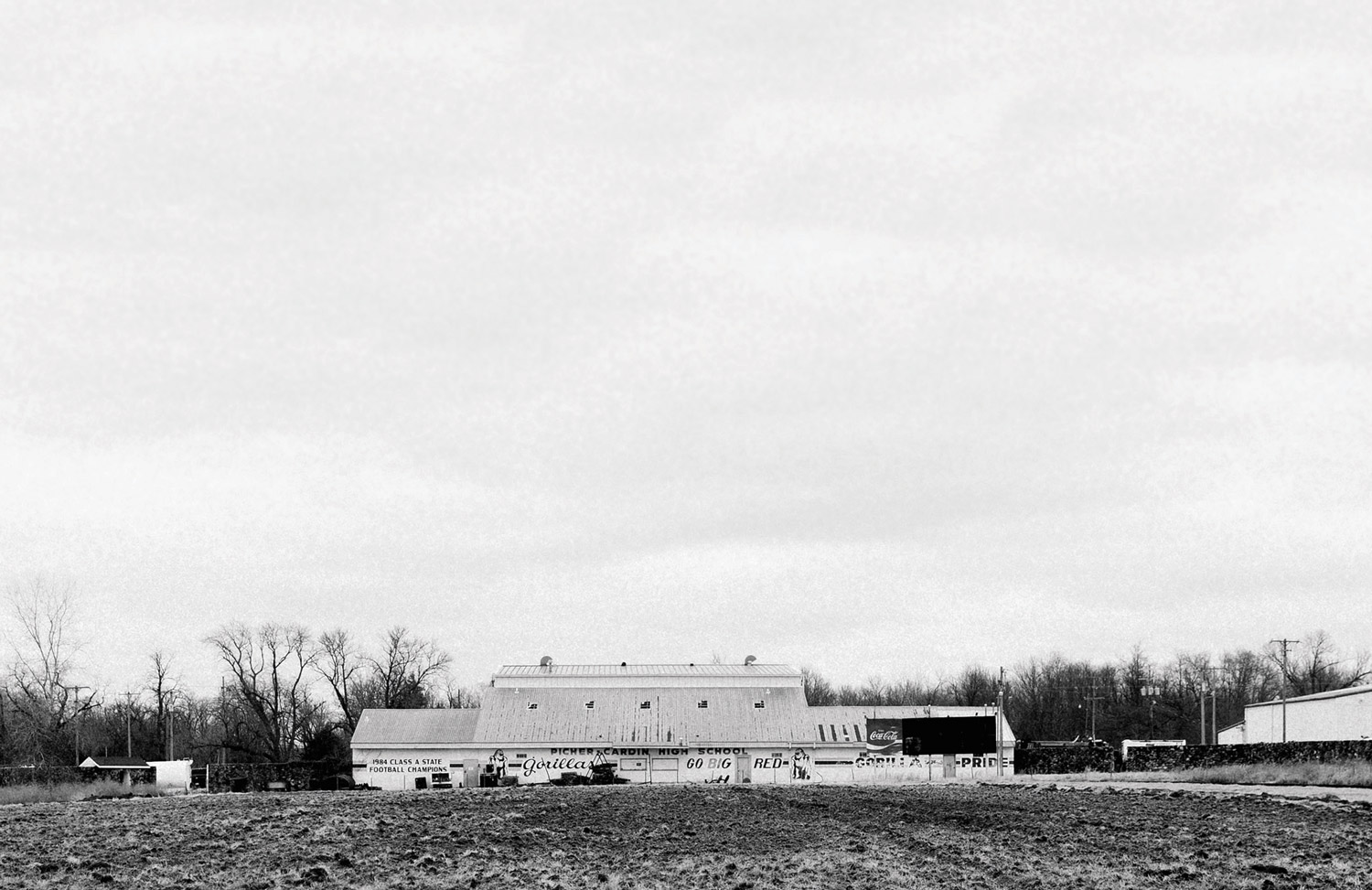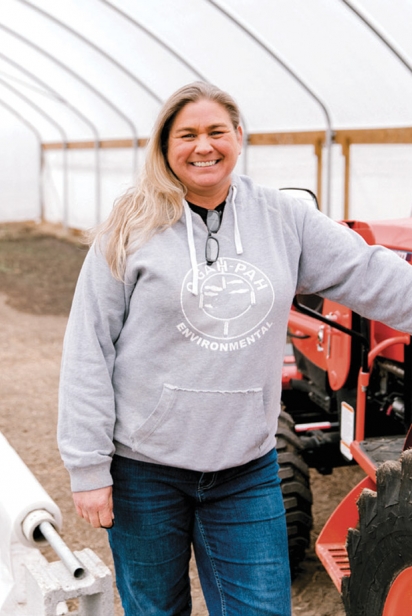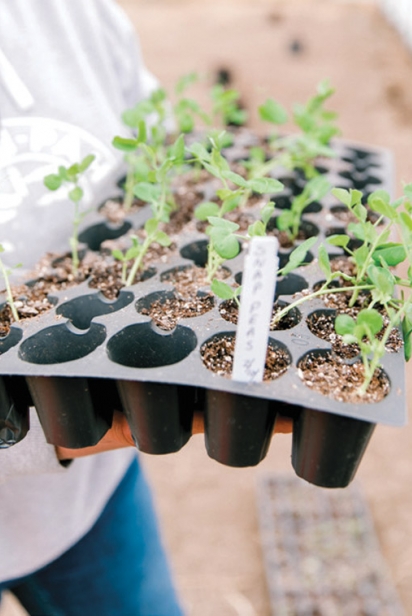Ghost Town to Garden
Quapaw Nation Returns Life To Polluted Land Through The Food Sovereignty Movement
On the site of an abandoned high school football field in Picher, Oklahoma, ancestral seeds of heirloom red corn and other crops transform a ghost town into the future site of an Indigenous farm.
It’s one of the initiatives spearheaded by the Quapaw Nation’s Michelle Bowden, the tribe’s agricultural environmental specialist, who is building the tribe’s food sovereignty department. Her mission is to extend the tribe’s efforts beyond their casinos, which already produce vegetables, herbs, coffee, and beer for their own facilities. The Quapaws also own herds of bison and cattle and process them in a tribally-owned facility, an impressive initiative that economically empowers this small tribe of only a few thousand members and benefits surrounding communities and ranchers as well.
In 2019, Bowden launched the Quapaw Farmers Market, making locally grown, affordable food available in a former food desert, while supporting small, local growers and craftspeople. She also spearheaded a food preservation project that offers tutorials on the arts of canning, fermenting, and dehydrating foods. Classes and supplies are furnished by the tribe and are available to the public.
“We wanted to educate the community on how to be sustainable themselves when it comes to food,” Bowden explains. “I want to make it to where everybody can be self-sufficient.”
One of the most exciting initiatives in Bowden’s strategic plan is the Quapaw Nation’s seed bank. Going into its third year, this fledgling program has distributed over 5,000 seeds for free in Oklahoma and across the nation. These seeds include heirloom varieties of corn and tomatoes, including a formerly lost variety of Quapaw Native American Red Corn.
Reviving ancestral crops isn’t just culturally important, it also has the potential to bring agricultural biodiversity to regions that haven’t supported indigenous foodways since Native Americans lived freely, prior to forced displacement and assimilation. Today, Bowden’s seed bank crop is taking root in the most unlikely of locations—an abandoned football field in Picher. Due to its isolation, the location is perfect for wind-germinating corn and other crops.
Picher was once a hub for lead mining, an effort that began at Oklahoma statehood and helped supply American bullets during World Wars I and II. After the wars, heavy metal contamination was pervasive. At least one-third of the children suffered from lead poisoning, many structures were in danger of collapse, and the townspeople were forced to evacuate. Mountains of mining waste, called chat, combined with the vast plains to form the town’s backdrop. Abandoned as an empty shell of crumbling buildings sitting on toxic soil, the EPA declared Picher part of the Tar Creek Superfund site in 1983.
The Quapaw Nation did not give up on its land or its people. The tribe won the right to restore the contaminated site and manage the clean-up effort. They were the first tribe in history to be granted this right and other tribes are now following suit. Piece by piece, square by square, the Quapaw Nation is honoring the land and transforming a ruin into a garden. “We know that we are going to be the ones to take care of our land more than anybody else. We’ve got a vested interest in it,” Bowden says.
The clean up is a massive effort that will take over a century to complete. Root systems and soil must be dug up to the bedrock and chat removed. The football field was one of the first locations cleaned and it undergoes regular testing. Bowden knows she will not see the project completed in her lifetime, but, to her, the effort is full of meaning. With enough resources, effort, and time, the land will someday be cleaned and transformed into a thriving agricultural site.
Today, it begins with seeds planted in an old football field. But, in five, ten, twenty years from now? Bowden pictures lush fields, rows of pecan trees, and Native heirloom crops that will take back the land and restore it to a purer form.








